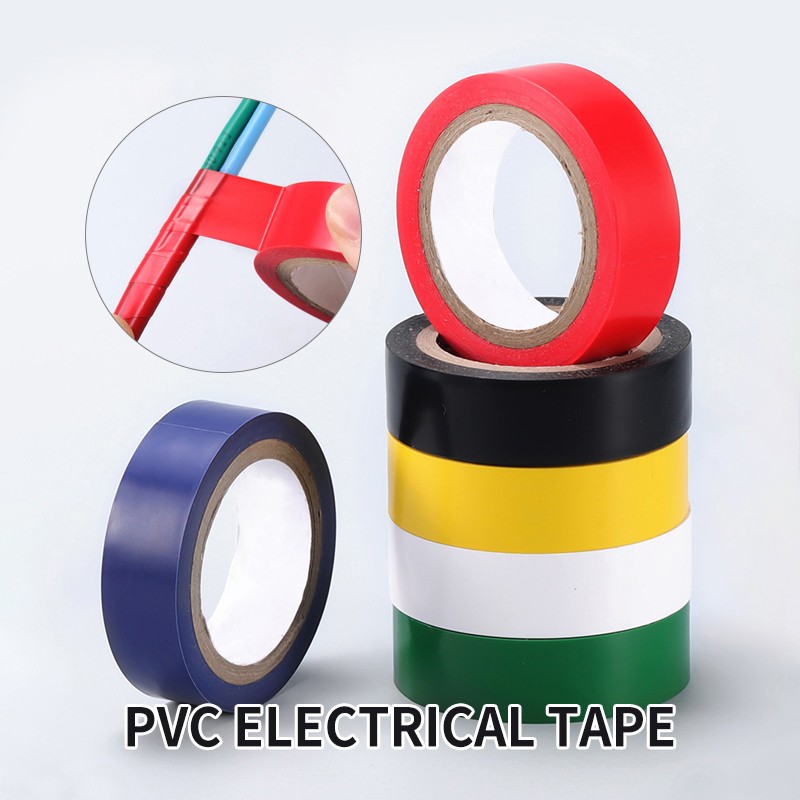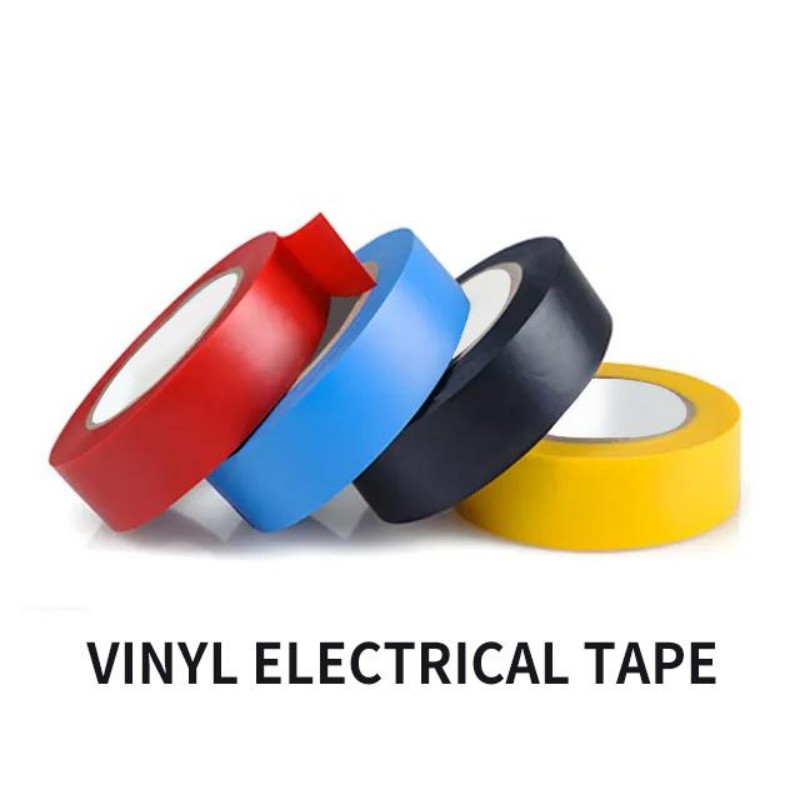When working with electrical systems, choosing the right insulation tape is critical for safety and performance. Two of the most commonly used options are vinyl electrical tape and PVC electrical tape. While they share similarities, they also have key differences that make each better suited for specific applications.
In this guide, we’ll compare vinyl vs. PVC electrical tape, examining their properties, strengths, and ideal use cases to help you determine which is the best choice for your electrical projects.


What is PVC Electrical Tape ?
PVC electrical tape (polyvinyl chloride) is a type of plastic electrical tape widely used in scenarios similar to standard vinyl tape. However, it has distinct advantages in certain conditions:
✔ Better Performance in Cold Temperatures – While both vinyl and PVC tapes have similar high-temperature resistance, PVC performs much better in very low temperatures, making it ideal for outdoor or cold-environment applications.
✔ Superior Durability – PVC tape is more resistant to abrasion, corrosion, and harsh weather conditions, making it a preferred choice for rugged outdoor wiring, industrial settings, and exposed installations.
✔ Strong Environmental Resistance – It holds up well against moisture, UV exposure, and chemical contact, ensuring long-lasting insulation in challenging environments.
Best Uses for PVC Electrical Tape:
• Outdoor electrical wiring.
• Industrial and heavy-duty applications.
• Cold-weather installations.
• High-abrasion or corrosive environments.
What is Vinyl Electrical Tape ?
Vinyl electrical tape is the most common and versatile type of insulation tape used for general wiring, repairs, and insulation jobs. It offers a balanced combination of flexibility, adhesion, and environmental resistance, making it a go-to choice for many electricians and DIYers.
✔ Excellent Flexibility & Adhesion – Vinyl tape conforms tightly to wires and maintains strong adhesion over time, ensuring secure insulation.
✔ Good All-Purpose Performance – It provides solid resistance against moisture, chemicals, abrasion, and moderate temperature changes, making it suitable for most indoor and some outdoor uses.
✔ Wide Availability & Affordability – As the standard choice for low-voltage applications, vinyl tape is widely available in multiple colors for easy wire identification.
Best Uses for Vinyl Electrical Tape:
• Household electrical repairs
• Insulating wire splices and connections
• Bundling and color-coding cables
• General-purpose electrical insulation
Key Differences: Vinyl vs. PVC Electrical Tape
|
Feature |
Vinyl Electrical Tape |
PVC Electrical Tape |
|
Flexibility |
Highly flexible, easy to stretch and wrap |
More rigid, less stretchable |
|
Temperature Resistance |
Good for moderate temps (but weak in extreme cold) |
Better in very low temperatures |
|
Durability |
Good for general use |
More abrasion and corrosion-resistant |
|
Weather Resistance |
Decent, but not as strong as PVC |
Excellent for harsh outdoor conditions |
|
Best Applications |
Indoor wiring, DIY repairs, low-voltage work |
Outdoor/industrial use, cold environments |
Which Should You Choose? Vinyl or PVC?
✔ Choose Vinyl Electrical Tape If You Need:
• A flexible, easy-to-use tape for general wiring
• Good adhesion for long-term insulation
• Cost-effective solution for indoor and light-duty tasks
• Color-coding for electrical systems
✔ Choose PVC Electrical Tape If You Need:
• Superior cold-weather performance
• Extra durability against abrasion and corrosion
• Outdoor or industrial-grade protection
• Heavy-duty insulation for harsh environments
For most everyday electrical tasks, vinyl electrical tape is the best choice due to its flexibility, strong adhesion, and affordability. However, if you’re working in cold climates, outdoor settings, or demanding industrial environments, PVC electrical tape provides better durability and weather resistance.
Always check the manufacturer’s specifications to ensure the tape meets the required safety and performance standards for your project.
Post time: Jun-27-2025




